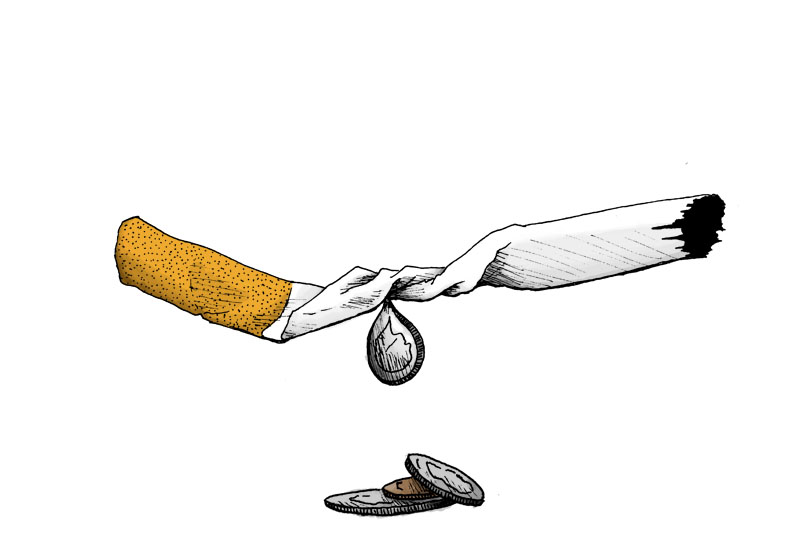Policy makers in Indonesia are reluctant to address the smoking issue to the point where they are defending the cigarette business, according to a story in The Jakarta Post quoting the chairman of the Indonesian Consumers’ Foundation (YLKI), Tulus Abadi.
Tulus said that President Joko ‘Jokowi’ Widodo’s decision not to increase cigarette excise in 2019 betrayed his development agenda in which he and vice president Jusuf Kalla had vowed to double the tax between 2015 and 2019.
“This decision is a terrible setback on excise policies,” Tulus told reporters at a press conference on the weekend, adding that the revenue from the excise was not comparable to the financial losses caused by smoking. “The state has failed to understand the true [point] of the excise.”
The lack of tobacco control, Tulus said, was a major contributor to noncontagious diseases covered by the Health Care and Social Security Agency (BPJS Kesehatan), with the prevalence increasing to 1.8 percent in 2018 from 1.4 percent in 2014, according to the Basic Health Survey.
The decision to keep the excise unchanged was ironic, he said, because the government had allocated 50 percent of the regional excise revenue to cover expenses incurred by BPJS Kesehatan, which was running at a deficit of Rp16.5 trillion (US$1.17 billion).
That said, Jokowi has a consistent record of increasing cigarette excise, which has risen every year since he assumed office: by 8.7 percent in 2015, 11.3 percent in 2016, 10.5 percent in 2017, and 10.4 percent in 2018, according to Statistic Indonesia data compiled by the Institute for Development of Economics and Finance.
Nevertheless, Tulus urged the government to increase the excise tax by 57 percent, because, he said, the accumulated increase since 2015 had reached only about 40 percent.
Cigarette excise had contributed Rp153 trillion to state revenue in 2018, he said, but it could reach Rp350 trillion if the Government had a ‘firmer stance on its regulation’.











